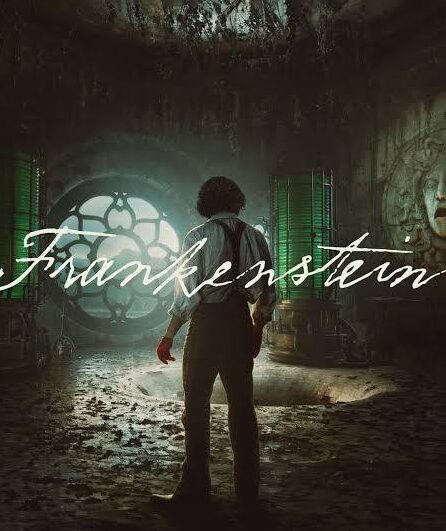
Watching del Toro’s Frankenstein, I was struck by Victor’s description of his creation as “obscene, monstrous, grotesque.” a horror to behold. It was uncomfortable to hear the creator speak of his creation in such unrestrained invective. The creature’s longing for companionship and love made this especially painful to watch as he responds to Victor, “I have love in me the likes of which you can scarcely imagine and rage the likes of which you would not believe. If I cannot satisfy one, I will indulge in the other” (Shelly).
The tense relationship between creator and creature, which is eventually cast as father and son, invites us to explore “the chain of pain” in familial relationships, identifying good longings that go unfulfilled. While it is unfair to reduce this relationship to a single metaphor, there are insights to be gleaned by looking at Frankenstein from various angles.
The Father-Son Relationship
The first insight is on the nose–the power of the father-son relationship. It has the power to destroy and to lift up, to demoralize and to empower. Every son longs for the approval of his father, even those who already possess the approval of a good father. We are made to enjoy the sun of our dad’s delight, to live in the confidence of what he thinks of us, and yet, every father fails to do this adequately. We cannot do it consistently or deeply enough–we are made to rest in the approval of a greater Father.
The Image of Self
A second insight comes from the observation I made earlier–the discomfort of Victor’s description of his creation: obscene, monstrous, grotesque. The twist comes when we realize that Victor is looking at an image of himself. The hubris-filled creator cannot settle for anything less than perfection (when the creature did not immediately learn to speak, Victor deems him unintelligent.) The grotesque appearance of his creation is a reflection of his own depravity–a lust for creative glory and success.
The Creator become Disfigured Creature
It is here that we are invited to see ourselves. As Del Toro says, “I am the monster,” his film in part a commentary on humanity’s capacity for evil. We all snub, gossip, slander, silently hate, and worse. We have a grotesque dimension to our humanity. Thinking about this, I found this description stunning:
he had no form or majesty that we should look upon him, and not beauty that we should desire him. He was despised and rejected by men; a man of sorrows and acquainted by grief; and as one from whom men hide their faces (Isaiah 53:2-3)
This ushers in the third insight. In looking at the creature, we not only see ourselves but also the Creator. Christ, the one in whom all things are made, embraces a form from which men hide their faces. Marred beyond recognition at the cross, Jesus wears our depravity and endures our rejection. Why? To reunite Father and son, Creator and daughter, God and humanity.
For this reason, the closing scene of Frankenstein pulls on our deepest longings–to be forgiven and restored, our image renewed and the father’s love enjoyed. In Christ, the distorted son forgives fallen fathers and mothers, men and women, that we may truly live.
